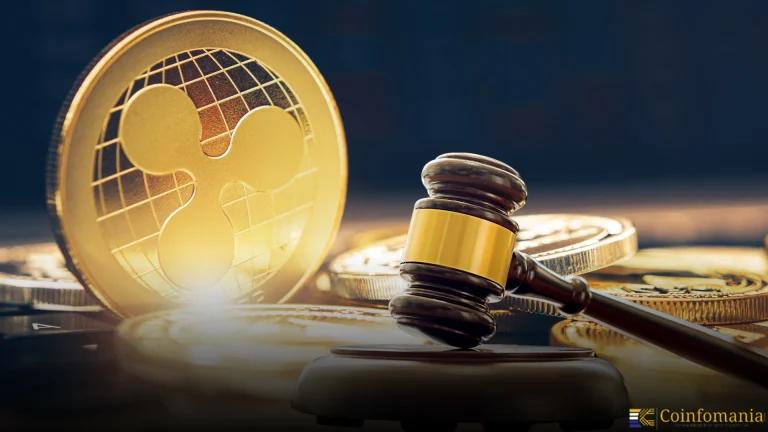Cryptocurrency Regulation in the Netherlands
The Dutch rules for crypto are moving from a light “register and report” model to a full licence regime that matches the new EU Markets in Crypto-Assets Regulation (MiCA). Since spring 2020 exchanges and wallet companies have only needed to join the register of De Nederlandsche Bank (DNB) and comply with anti-money-laundering checks. That will […]

The Dutch rules for crypto are moving from a light “register and report” model to a full licence regime that matches the new EU Markets in Crypto-Assets Regulation (MiCA). Since spring 2020 exchanges and wallet companies have only needed to join the register of De Nederlandsche Bank (DNB) and comply with anti-money-laundering checks. That will soon change.
The Dutch Authority for the Financial Markets (AFМ) opened its online licence portal on 22 April 2024, and any licence it grants can be used from 30 December 2024. By 30 December 2025 every firm that serves customers in the Netherlands must hold a MiCA licence issued either by the AFM or by another EU supervisor.
Historical Context
When the Fifth EU Anti-Money-Laundering Directive entered Dutch law in May 2020, exchanges and custodians were reclassified as a crypto service providers under the Money-Laundering and Terrorist-Financing Act (Wwft). They had to subscribe to DNB, conduct know-your-customer due diligence and submit suspicious-activity reports.
In practice the register proved helpful but not complete, so Dutch authorities looked for stronger rules. On 22 April 2024 the AFM began accepting MiCA applications and even offered an optional “pre-scan” meeting so new businesses could fix gaps before filing. The Dutch Implementing Act for MiCA then entered into force on 30 December 2024 and started a one-year transition to the new system.
Regulatory Framework
During the transition two layers of supervision run side by side. Firms must stay on the Wwft register and follow DNB’s money-laundering rules, yet they also need to prepare a full MiCA application. MiCA asks for clear corporate governance, segregation of client assets, incident-response planning and capital of roughly €50 000 to €150 000, depending on the services offered. Directors and large shareholders are checked for honesty and competence.
Tokens that act like electronic money, such as euro-backed stablecoins, remain under the prudential eye of DNB while the AFM supervises how they are marketed. Moreover, every crypto business must respect the EU “travel rule”. That rule says that for any transfer of €1 000 or more the names and wallet details of both the sender and the receiver must travel with the payment, and Dutch guidance explains how to verify self-hosted wallets with test transactions or digital signatures.
Netherlands Crypto Policies
Dutch law treats crypto as digital property, not as legal tender, so bills and salaries still settle in euros. Private holders pay tax under “Box 3”. On the first of January the tax office looks at the total value of coins and other assets, assumes a fixed yield and taxes that yield at 36 percent. There is no classic capital-gains tax. If mining, staking or trading becomes a real business the income moves to “Box 1” and is taxed like normal earnings.
Advertising rules are also tightening. MiCA demands that all promotions be correct, clear and never misleading, and each advert must carry a visible risk warning. The AFM has already reminded firms that over-promising returns or hiding fees is forbidden.
Crypto Innovation Approach
Even as regulation grows stricter, Dutch crypto culture stays lively. Universities in Delft and Eindhoven test blockchain tools for logistics, identity and green-energy trading. Meanwhile Dutch apps such as Bitvavo and Bitonic work on easy euro on-ramps through the popular iDEAL network. Because more than forty companies are already on the DNB register, many of them plan to upgrade those registrations into full MiCA licences and then “passport” their services across the European Union.
Challenges and Issues of Note
Dutch high-street banks still handle large crypto flows with caution. They may freeze accounts until a firm proves the legal source of funds, which pushes some start-ups toward foreign e-money partners. Complying with MiCA is also expensive: apart from the capital requirement, companies must produce detailed manuals, undergo external audits and pay one-off supervisory fees. At the same time the AFM has found that many retail users underestimate risks such as sudden price swings and scam tokens.
Important Trends and Prospects
Throughout 2025 the AFM will publish extra rulebooks that spell out how to guard private keys, log incidents, handle customer complaints and report environmental data. Firms must also connect to secure travel-rule message hubs before year-end because after 1 January 2026 any missing identity data can trigger swift penalties. Still, the reward is large: one Dutch MiCA licence automatically opens all other EU markets, turning Amsterdam into a launch-pad for continent-wide services.
Conclusion
Dutch crypto oversight has travelled from a simple register in 2020 to one of Europe’s most detailed licence regimes in 2025. Companies that invest early in capital strength, honest marketing and robust security will keep operating at home and unlock the whole EU through passporting. Those that wait risk being shut out after the deadline. In short, readiness is quickly becoming the main competitive edge in the Dutch crypto scene.
FAQs
1. Is crypto legal money in Dutch shops?
No. Coins like Bitcoin are classed as digital property, so everyday payments still happen in euros.
2. Do I need permission to run an exchange or wallet?
Yes. You must stay on the DNB register now and, before 30 December 2025, you must also hold a MiCA licence from the AFM or another EU supervisor.
3. When will the switch to MiCA become complete?
Applications to the AFM will be accepted starting on 22 April 2024, the use of licences will commence on 30 December 2024 and the last date of compliance is 30 December 2025.
4. How much starting capital does a licence require?
Most firms need between €50,000 and €150,000 of their own money, depending on the services they plan to offer.
5. How are small investors taxed?
On 1 January each year the tax office values your coins, assumes a set return and taxes that assumed return at 36% in Box 3.
6. What if I mine or stake coins?
If it is only a hobby, the coins still sit in Box 3. If it grows into a true business, the profits move to Box 1 and are taxed as normal income.
7. What does the travel rule mean in practice?
For transfers of €1,000 or more, the sender’s and receiver’s names and wallet details must travel with the payment and be stored by both firms.
8. Can I advertise crypto on Dutch social media?
Yes, but the advert must be truthful, clearly identified as advertising and must show a visible risk warning.
9. What happens if a foreign exchange keeps serving Dutch users without a licence?
After the deadline the AFM can fine the company or have Dutch internet providers block access to its app or website.
10. Do coins on a hardware wallet still count for tax?
Yes. Storage method does not matter: if you own the coins on 1 January, they form part of your Box 3 assets.
Follow us on Google News
Get the latest crypto insights and updates.
Related Posts

Ripple Highlights Custody as Key to $18.9T Tokenized Assets by 2033
Shweta Chakrawarty
Author

Hong Kong SFC Issues New Custody Rules for Crypto Platforms
Shweta Chakrawarty
Author

South Korea and Vietnam eye $150B trade despite Trump tariff
Shweta Chakrawarty
Author